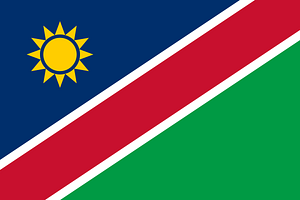
A report from the World Health Organization (WHO) showed that Namibia has achieved unprecedented progress in Africa in controlling HIV and hepatitis B. The WHO recognized this by awarding Namibia “silver tier” status for its efforts against hepatitis B and “bronze tier” for HIV.
Namibia’s success comes from a coordinated strategy to combat the spread of syphilis, HIV, and hepatitis B through the WHO’s Triple Elimination Initiative. This initiative aims to ensure that children are born free from these viruses, promoting the health of mothers and children.
“The Triple Elimination Initiative aims to stop mothers from passing HIV, syphilis, and hepatitis B to their babies. These viruses are common in poorer countries. The initiative encourages integrating services and focusing on individuals to better the health of mothers and children,” according to the WHO report.
“This is a significant accomplishment for Namibia, showing what can be done with strong political will and effective public health management,” said Dr. Matshidiso Moeti, WHO Regional Director for Africa.
“With more focused efforts, we can stop mothers from transmitting HIV, hepatitis B, and syphilis to their children,” she added.
In Namibia, over 200,000 people live with HIV, with a higher rate of new infections among women.
Since 2010, worldwide efforts have prevented HIV transmission from mothers to 2.5 million children, including 28,000 in Namibia. Over the past 20 years, there’s been a 70% decrease in mother-to-child HIV transmission, thanks to better treatment and widespread HIV testing for pregnant women.
“Namibia reached this milestone by addressing HIV not just on its own but as part of a wider health and development plan that includes maternal and child health. This approach has extended support even to the most remote areas,” said UNICEF Regional Director for Eastern and Southern Africa, Etleva Kadilli.
In 2022, only 4% of babies born to HIV-positive mothers in Namibia contracted the virus. Moreover, over 80% of newborns received their hepatitis B vaccine on time, an important measure towards elimination.
“In many countries, children do not receive the same level of care as adults. Namibia has challenged this and set an example for the region by ensuring no child is left behind,” said Anne Githuku-Shongwe, UNAIDS Regional Director, East and Southern Africa.
Namibia launched its first National Elimination Strategy in 2014, followed by a roadmap in 2020 to eliminate HIV and syphilis, later including hepatitis B. Following WHO guidelines, Namibia established a multisectoral National Validation Committee to eliminate these three diseases.
